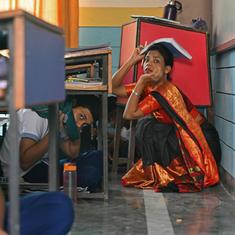MP: Speaker seeks time to decide on MLAs’ resignations, SC says ‘weeks gold mine for horse trading’
The top court said it can appoint an observer to ensure rebel Congress legislators were not being held against their wishes in Bengaluru.

The Supreme Court on Thursday said it can appoint an observer to ensure the rebel MLAs’ in Madhya Pradesh resigned voluntarily and that they were not being held against their wishes. The court also suggested that the observer can connect with the Assembly Speaker through video conference for him to make a decision, News18 reported.
The top court was hearing a petition filed by the Bharatiya Janata Party seeking a floor test for the Kamal Nath government in Madhya Pradesh. The state has been in a political crisis, with a collapse imminent for the Congress government, after 22 of its MLAs resigned last week. On Wednesday, the top court had said its primary duty in the Madhya Pradesh political controversy is to independently verify whether the 16 dissident MLAs are holed up in Karnataka or have been held “captive” in the BJP-ruled state.
A bench of Justices DY Chandrachud and Hemant Gupta said Speaker NP Prajapati was yet to decide on the resignations of these absent MLAs and the Congress has accused the BJP of holding the MLAs incommunicado in Bengaluru.
During the hearing, advocate Abhishek Manu Singhvi, appearing for the Speaker, said the court should give two weeks’ time to Prajapati to decide on the resignations. “Weeks are gold mines for horse-trading,” Chandrachud said in response. “It is why the court has been proactive in ordering the floor tests. The idea is to force the hands and make sure the floor test happens as soon as possible and prevent such things.”
Maninder Singh, the counsel for rebel MLAs’, said the Congress is trying to delay the floor test.
“We gave you a clear methodology to alleviate the issue of captivity, we intend to appoint an observer who will be the only one in the room,” Chandrachud added. “And this is now a national problem. It is not only about one state. We may not give a direction since we need to work within the domain of the Constitution but we also have to test your bona-fide.”
Singhvi, however, said the Speaker cannot decide on the resignations through video conference. “You can’t say I will buck my duty to decide and will also put the blame,” Chandrachud said. “We can create conditions to ensure exercise of their volition is truly voluntary. We can appoint an observer to Bengaluru or some other place. They can connect with you on the video conferencing and you can then decide.”
The court said the governor has the power to direct the Speaker to hold trust vote if the House is not in session and if the ruling party loses majority. Singhvi argued that summoning, proroguing and dissolving are the only three powers of the governor. He added that the Assembly has been adjourned in six states due to the coronavirus outbreak, Bar and Bench reported.
Meanwhile, Solicitor General Tushar Mehta responded by saying that “Assembly cannot sleep, the session is always running”. Singhvi and other lawyers disagreed with his submission.
“It is a test case on if any governor will have the power to destabilise any government,” Singhvi continued. “My Lords will be opening the floodgates, making it unmanageable. This court needs to only see if this decision of the Speaker is perverse. Even the Parliament is considering to stall its proceedings.”
The arguments in the case will resume after lunch break.









